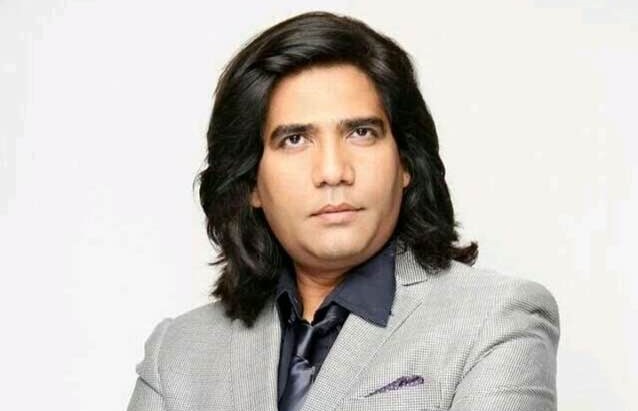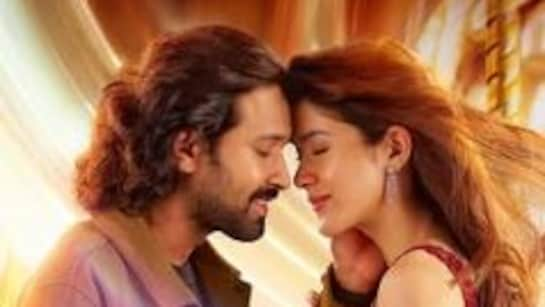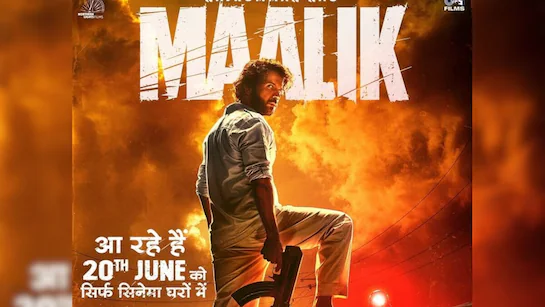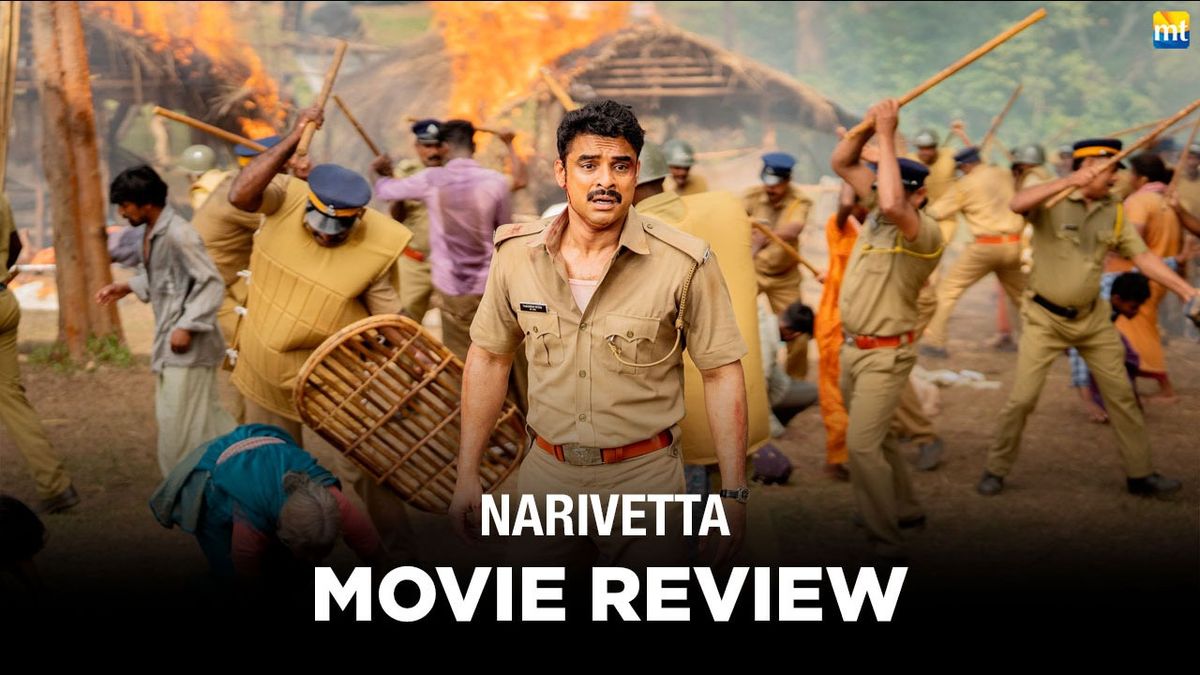
“Sanjay Leela Bhansali ji gets the best out of me as a lyricist” – A. M. Turaz
A. M. Turaz is one of the very few lyricist today who contribute towards keeping the legacy of rich poetry being used in Hindi film music alive. The lyricist, who is known for his songs like ‘Udi’ (‘Guzaarish’), ‘Kabhi Jo Baadal Barse’ (‘Jackpot’), ‘Aaj Ibaadat’ (‘Bajirao Mastani’), ‘Ghoomar’ (‘Padmaavat’), ‘Jab Saiyaan’ (‘Gangubai Kathiawadi’) and ‘Seher’ (‘Rashtra Kavach Om’), has penned the song ‘Naseeb Se’ for the Kartik Aaryan – Kiara Advani starrer ‘Satyaprem Ki Katha’ which releases in theatres this week.
In this interview, the prolific poet and lyricist talks about his journey in the Hindi film industry, long-standing collaboration with Sanjay Leela Bhansali, the losing importance of poetry in Hindi cinema, wish to work with A. R. Rahman, Heeramandi and more.
‘Naseeb Se’, the recently released song from ‘Satyaprem Ki Katha’ which has been written by you, has become quite popular.
I had worked with Payal Dev, who has composed this song, earlier as well. ‘Naseeb Se’ was created specifically for the film. We had extensive discussions with the director while creating this song. Payal composed the tune first and then, I wrote the lyrics. Working on films like ‘Satyaprem Ki Katha’, that have romance at the core, is always a good experience. You get to write extensively about emotions. The song has been picturized beautifully. Vishal has sung it very well too.
You have worked with Sanjay Leela Bhansali on multiple projects starting from ‘Guzaarish’. You last collaborated with him on the ghazal album ‘Sukoon’. You wrote four songs (‘Ghalib Hona Hai’, ‘Gham Na Hone’, ‘Har Ek Baat’ and ‘Muskurahat’) for the album.
‘Sukoon’ par kaam karke mujhe bahut sukoon mila. Even the audience appreciated the album a lot. It was a great moment of happiness for me. I will always be grateful to Sanjay Leela Bhansali ji for giving me the opportunity to work on this album. We worked on this album during the lockdown. Very few people in the industry appreciate such poetry these days. A lot of times, music labels say, “aisi cheezein chalti nahin hain”. Everything will work if it is made honestly. There is an audience for all kinds of music. The fact that listeners showered a lot of love on the album proves this.
There was a time when music labels would encourage all kinds of music. From ghazals to remixes, labels would release everything.
As a listener, there could be some kind of music which I would find below the standard or wouldn’t want to listen to. However, I am not against any genre of music. Those who are running the music companies should not have any demarcations in their head. All kinds of music should be made. It is wrong to say that a particular thing that was working in the past will not be accepted today.
You have been associated with Sanjay Leela Bhansali for almost thirteen years now. Though he had composed one song (‘Thode Badmaash’) in ‘Saawariya’, he made a full-fledged debut as a composer with ‘Guzaarish’. The film also marked your first collaboration with him. What is the kind of process he follows while compose music?
Working with Sanjay ji always turns out to be a memorable experience. He mostly prefers the lyricist to write the verses and then, he composes a tune around it. This is very rare in today’s times. These days, most composers put together the composition and then, get somebody to write the lyrics. This is one of the reasons why working with him is a delightful experience. Most of the songs we have done together are the ones that were written first.
Does he play the tune on an instrument?
No, he always sings out the song in his voice.
You have worked with him on so many projects. What, do you think, differentiates him from other filmmakers?
He is deeply rooted in the cultures of India. That is his biggest strength as a filmmaker. Whenever we meet, he asks, “Turaz, tumne achcha kya likha?”. He treats writers and lyricists with a lot of respect.
The initials in your name stand for Aas Mohammad. That’s your real name and Turaz is your thaqallus or pen name. Your journey in the film industry started when you arrived in Mumbai in the year 2002. Interestingly, you started writing poetry just 2-3 years before coming to Mumbai.
When God wants to give you something, he creates an environment around you that leads you in that direction. I was around 18 years old and had big dreams in my eyes. However, there were very few around me who understood the value of my dreams. Through poetry, I found an outlet for my emotions.
What kind of preparation you went through to polish your skills as a poet?
I used to read a lot of poetry written by the great poets. As you keep moving forward, you become more prepared. Dhaake khaake samajh mein aaya ki hunar nahin hai. I worked harder to hone my craft. Life experiences teach you everything. It has been more than twenty years since I arrived in Mumbai. I have gone through varied experiences in these two decades.
“Zindagi naakamiyon ke naam ho, isse pehle koi achcha kaam ho…” – this is one of the couplets written by you. What is the kind of struggle you had to go through in Mumbai?
My struggle has not come to an end. Till the time life is there, struggle would be there. Struggle helps you move forward in life. Struggle ends the day the life ends.
Your mother is named Qaafiya which is one of the important devices used in Urdu poetry. When your parents were not too supportive you about moving to Mumbai, your dadi or maternal grandmother gave you a lot of support.
My parents were not really against my decision. They were just a little concerned. I am the only son of my parents. I come from a very small town called Sambhal Heda which is in the Muzzafarnagar district of Bihar. Mumbai was a city unknown to us. My dadi ji gave me a lot of encouragement and I will always be grateful to her for that.
After you shifted to Mumbai, your family supported you financially for two years. You started your career as a writer on television.
The first television project I worked on ‘Pali Hills’. It was a TV serial produced by Shahrukh Mirza for ETV Urdu. I wrote a lot of serials for DD Metro. In the year 2005, I got my first film ‘Kudiyon Ka Hai Zamaana’. For the next few years, I mostly got small films to write songs for. I met Sanjay ji in 2007 when he was making ‘Saawariya’. We met again in 2009. Around this time, he offered me ‘Guzaarish’. Once ‘Guzaarish’ came out, people started recognizing my work. I was very active with mushairas but had stopped attending them for a while. In 2013, I started writing poetry again and reciting them in mushairas. That opened up a new career path for me.
We see you do very few films. Why?
Very few people ask me to write for films. Jis cheez se hum bahut mohabbat karte hain, who humein kam hi milti hai.
What did your hometown Sambhal Heda teach you?
I grew up in Sambhal Heda and lived there for years with my family. Whatever I am today is because of Sambhal Heda. I will always indebted to my land and the people who live there.
One of the unhealthiest trends in Hindi film music today is composers writing lyrics. The songs they write are filled with grammatical mistakes and devoid of rhythm and imagery. What are your thoughts on this trend?
There is a lot of chaos in the music industry today. Sometimes, people feel insecure and take such steps. Unfortunately, one can’t do anything about it.
What do you think makes you different from other lyricists?
We cannot judge ourselves. I try to do the kind of work that I will be comfortable doing. Every writer has a unique andaaz. Whatever we are is because of the audience.
The film industry tends to stereotype people. Once you do a particular kind of work and it gets noticed, the industry offers you similar work. Would you be comfortable writing something which people do not expect from you?
I wrote a satire in ‘Chakravyuh’. At the end of the day, I am a creator. I try to adapt myself to different situations.
Is there any composer you wish to work with?
I have always been a big admirer of A. R. Rahman saab’s work. I would be very happy if I get the chance to work with him.
You have also dabbled in screenplay writing for film. You wrote a film called ‘Direct Ishq’ in 2016. Do you plan to write more screenplays in the future?
I am not writing any screenplays at the moment. However, if I get an opportunity to write a screenplay in the near future, I might take it up. I wrote the dialogues for the series ‘The Empire’ which is streaming on Disney+Hotstar.
Your upcoming project is the Netflix original series ‘Heeramandi’ created by Sanjay Leela Bhansali.
Sanjay ji has done some brilliant work yet again. Through the music of ‘Heeramandi’, people will get to experience rich poetry again. Sanjay ji gets the best out of me as a lyricist.
People in the film industry do not seem to be valuing lyrics as much as they did back in the day.
The world is moving at a very fast pace. There are many problems that people have to deal with today. Because of this, a lot of people are not studying music and poetry in a nuanced manner.
Irshad Kamil had once said that there was a time when the first condition to become a lyricist was to be a poet.
That condition is there even today. Par baat yeh bhi hai ki jo kaam karwa raha hai woh kuch samajhta hai ya nahin.
Which script do you write songs in?
I can read and write Urdu. I continue to read Urdu literature but haven’t written in Urdu in a while. In the industry, people expect you to write in the Roman script. Laptop and phones have replaced pen and paper.
On songs written by him
Jaane Kiske Khwaab
It is my favourite song composed by Sanjay ji. This was, in fact, the first ever song I wrote for Sanjay ji. KK puts his soul into every song he sings.
Kabhi Jo Baadal Barse
It was one of my first big hits. It had a very unconventional tune. Arijit Singh rendered it brilliantly. The song released a week before ‘Tum Hi Ho’.
Ghoomar
To write ‘Ghoomar’, I went to Rajasthan to do research. If something has not been a part of the culture you grew up with and you have to write something on it, doing research is extremely important.
Jab Saiyaan
I recently got nominated for this song in IIFA. I will always be grateful to Sanjay ji for encouraging me to write such poetry.
Tum Na Aaye
It was my first song with Amaal. I wrote the verses first and then, Amaal set them to tune.
Publisher: Source link

Aankhon Ki Gustaakhiyan Movie Review

Maalik Movie Review – Bollymoviereviewz

As Dull As Citadel, Just Add Humour


